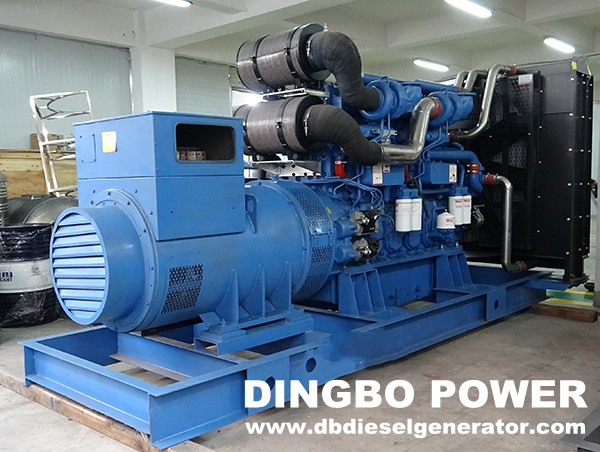dingbo@dieselgeneratortech.com
+86 134 8102 4441

- Home
- Products
- About Us
- Service
- News
- Technical Support
- Contact Us
dingbo@dieselgeneratortech.com
+86 134 8102 4441
Aug. 19, 2021
Generators are mechanical devices that convert other forms of energy into electrical energy. There are various forms and their working principles are based on the law of electromagnetic induction and the law of electromagnetic force. When purchasing diesel generator sets, the technical specifications of diesel generator sets have always been a problem that users are more concerned about. The technical specifications of generators are usually pasted on the nameplate label or directly marked on the shell of the generator, just like the model, for users to choose or repair by maintenance personnel. Time reference. In order to make the majority of users have a deeper understanding on diesel generator, Dingbo Power has compiled for you the collection of explanation on the common specifications of diesel generator sets as following.

1. Rated power p (kw) or s (kva): p is the active power output by the generator (p=√3IVcosφ), and s is the apparent power of the generator (S=√3IV).
2. Rated voltage V: Generally marked with 400V/230V, that is, the three-phase rated voltage is 400V, and the single-phase rated voltage is 230V.
3. Rated frequency f: The national standard stipulates that the power frequency unit is 50hz and the intermediate frequency unit is 400hz.
4. Rated current I: refers to the current that the generator stator winding is allowed to pass for a long time.
5. Rated power factor cosφ: 0.8 (lag) for three-phase generators, 0.9 (lag) and 1.0 for single-phase generators.
6. Rated speed n: the speed of the generator rotor at the corresponding rated power. At present, 1500r/min is more commonly used for three-phase generator sets, and 3000r/min is generally used for single-phase generator sets.
7. Rated excitation current Ir: when the alternator is in the rated load condition, the DC current passing through the excitation winding.
8. Rated excitation voltage Vf: refers to the DC voltage applied to the excitation winding at the rated excitation current.
9. Excitation mode: the power supply that provides the excitation current. The source from the outside of the generator is called separate excitation, and the source from the generator itself is called self-excitation. Separate excitation and self-excitation are collectively referred to as excitation methods. Separate excitation methods are divided into two types: parallel excitation and double excitation; self-excitation methods are divided into salient pole reverse sequence magnetic field excitation, AC exciter excitation, reactance phase shifting phase compound excitation, resonant phase compound excitation, and third harmonic Excitation, SCR excitation and many other types.
10. Reliability index MTBF: GJB235A-1997 General Specification for Military AC Mobile Power Stations stipulates that the average time between failures of diesel engines is 500h, 800h and 1000h.
The above is the explanation on the common specifications of diesel generator sets collected by the generator manufacturer-Dingbo Power. Dingbo Power is a professional generator manufacturer of diesel power generation integrating unit design, supply, commissioning, and maintenance. Over the years, the company has established close cooperative relations with Yuchai, Shangchai and other companies, and can provide you with 30KW-3000KW diesel generator sets of various specifications. We hope the information is helpful to you. If you need to buy diesel generator sets, please visit our website and contact us by dingbo@dieselgeneratortech.com.
Quicklink
Mob.: +86 134 8102 4441
Tel.: +86 771 5805 269
Fax: +86 771 5805 259
E-mail: dingbo@dieselgeneratortech.com
WhatsApp: +86 134 8102 4441
Add.: No. 10 Kechuang Road, High tech Zone, Nanning, Guangxi, China